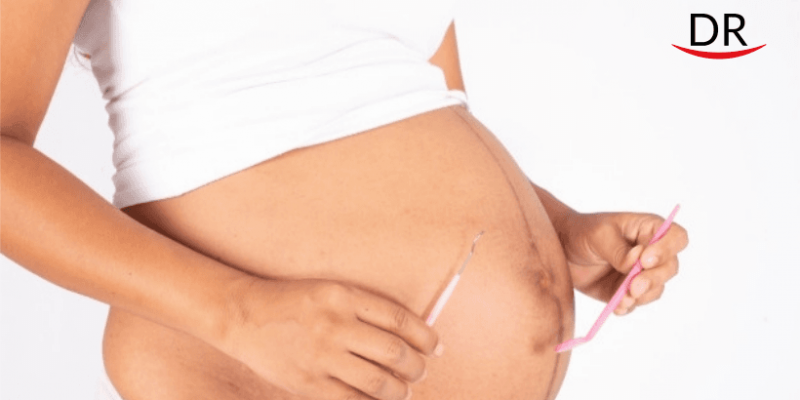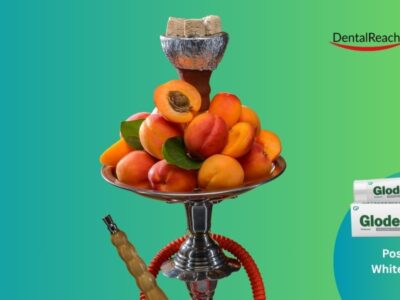Pregnancy brings a unique situation in a woman’s life! Being pregnant comes with many responsibilities- the way you take care of yourself and your oral health, as it affects the life inside you. Moms-to-be should maintain proper health care from the time she beams a beautiful smile and announces that she’s expecting a baby!
Preventive dental care and annual exams during pregnancy are not only safe, but are recommended. Your baby's first teeth begin to develop about three months into pregnancy. So care for your baby’s teeth starts during pregnancy!
Few tips to follow for healthy teeth of your unborn child during pregnancy-
- Brush your own teeth at least twice daily with fluoridated toothpaste and floss between your teeth.
Women who have tooth problems (periodontal disease/dental caries) are more likely to give birth prematurely, have babies with a low birth weight, and possibly even more likely to miscarry.
- Visit your dentist regularly when you are trying to conceive so that your pregnancy can be tooth-problem free. For any emergency dental work to be done done during pregnancy, the second trimester is ideal.
- Healthy diet during pregnancy containing dairy products, cheese, and yogurt are a good source of essential minerals and are great for the baby's developing teeth, gums, and bones.
- Increase your daily amount of calcium during pregnancy. Sufficient calcium will protect your bone mass and meet the nutritional needs of your developing baby.
You can read more on oral health in pregnancy and tips for moms-to-be here.
Once the baby is born, proper health care and oral health care is to be maintained. Children’s teeth begin forming during the intrauterine life as teeth buds in the gums. The upper and lower arch gum-pads are formed by the time of the birth and are to be cleaned after breastfeeding or bottle feeding.

In new born and infants, good oral health begins before the primary teeth erupt. Always clean your infant's gums after feeding:
- Lay the baby down with his/ her head in the lap and feet pointing away.
- Wrap a moistened sterile muslin cloth / a piece of gauze around the index finger of your free hand.
- Gently clean and massage the gum tissues.

Most parents come up with a question that when should we take our child to the dentist?
Ideally first dental visit should be when the first tooth erupts or latest by 1st birthday. Reasons –
- Firstly to check the teeth, the timeline of the teeth coming out / erupting which is around 6-7months. A delay of a few more months is normal, but beyond that would be an issue that needs a dentists’ evaluation.
- Early visits gets the child accustomed to the dental space. The child thinks of the dentist as a friendly face, hence early incentivizing is necessary. This helps in establishing the right routines and habits.
- For parent education and counselling on maintaining child’s oral health.
Infants normally begin teething between 4-6 months of age.
His/her gums may be red and swollen, and saliva flow may increase. He/she may also be irritable and there may be bouts of fever in this period. To ease these symptoms, give your infant a clean teething ring or cold wet washcloth.

From 6-12 months
If your drinking water is not fluoridated, talk to your paediatrician about infant fluoride supplements. Remember, dental decay is an infectious transmissible disease. Avoid testing the temperature of the bottle with your mouth, sharing utensils (e.g. spoons), or cleaning a pacifier or a bottle nipple by putting it in your mouth. These practices can help transmission of bacteria that cause tooth decay. Do not put your baby to bed with a bottle, prop it in their mouth. Discourage your little ones from taking any object or taking fingers in the mouth. Also discourage the habit of breast or bottle feeding by 12-14 months of age as such habits changes the teeth and jaw alignment.
For 2-3 years
The toothpaste should be a size of a rice grain. Use a small amount of fluoride toothpaste on a soft bristled toothbrush. Make sure the child does not eat or lick toothpaste from the tube. Variety of kid’s toothbrush are available in the market with cartoons, dolls, animals etc. on it which will encourage kids for brushing daily.

For 3 years and above
By the age of 3 years the child will have all the primary teeth (milk teeth=20). For 3 years and above, the toothpaste size should be pea size, as by this age the swallowing reflex has developed sufficiently to prevent inadvertent ingestion.

Early initiative should be taken for child’s correct brushing technique. A parent must always supervise the child. Your child will need your help brushing his or her teeth until the age of about 7 or 8. A child imitates the parent, so one can make it a family bonding activity by brushing together with a small dance routine.

From 6-12 years
The child will lose his/her baby teeth and will be replaced with permanent teeth. Regular oral hygiene is to be carried out. Use of soft to medium bristled toothbrush and fluoridated toothpaste. Guide your child’s hand so they can feel the correct movement. Use of a mirror to help your child see exactly where the brush is cleaning their teeth.

Regular dental visit is a must. Any orthodontic treatments if required are best started in this age group upto 18 years.
Oral care routine changes for toddlers as they get older. From the use of muslin cloth / a piece of gauze to using appropriate toothbrush and toothpaste and tongue cleaning, the oral health care journey begins.
Children’s oral health does not depend on what they eat but more on how often they eat. Good diet = healthy teeth! Cavity detection and anti- cavity treatment should be initiated for milk teeth as well. As baby teeth help to guide permanent teeth into place and play an important role in your child’s long-term dental health.
Note:
- An infant when breast-fed during the first year of life, nocturnal breast feeding should be avoided after the first primary teeth erupts.
- Encourage the child to take healthy food such as dairy products, fruits, vegetables.
- Parents are advised to reduce the child’s sugar consumption
- Regular check at every 6months lead to cavity free problems in future.
>>>>> Always follow the 2-2-2 rule. Brushing 2 times a day, for 2 minutes and visiting your dentist 2 times a year.




















Comments